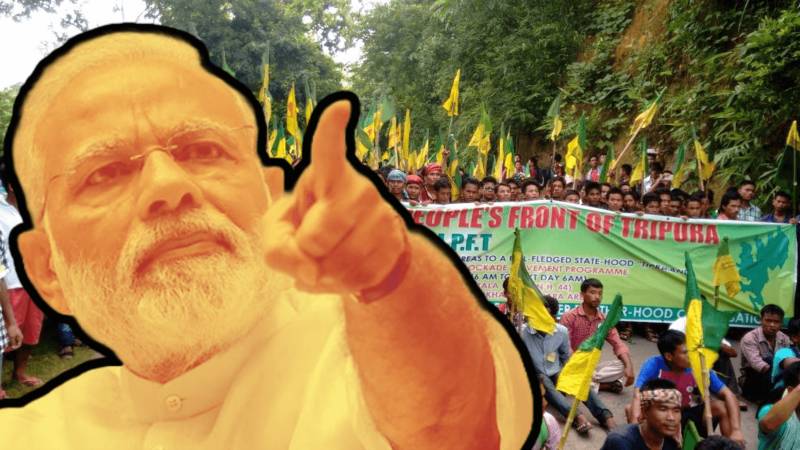
Imagine a scenario in which a patriarch makes honest attempts to rectify the devastation wrought on the clan in the aftermath of major, albeit, avoidable blunders, mainly based on his own miscalculations—or at least that’s how they are perceived by rest of the kinfolk—and the cacophony it unleashes can only be deciphered as a clamor for retribution first and salvaging efforts later.
Imagine further that the clansmen also feel that the same, familiar set pattern of such blunders has been recurring for a long time—let’s say a few decades—and, most importantly, the consequent after-effects have chiefly been at their expense. And, interestingly and quite unfairly, it’s the ordinary folks who have ended up at the receiving end of the blame for such catastrophes and not the patriarch himself.
Such is the absolute control the patriarch wields over the hearts and minds of his subjects making him invincible no matter how bad a leader—past and present—he has been.
In the heated discussions and debates in the chai khanas questioning the patriarch’s medieval methods and means of governance in the 21st century his supporters harp back to decades old policy (successful in their view) still deemed workable and sacrosanct by their leader.
While passionately distinguishing previous incidents of sheer folly on the part of the patriarch, they argue that the current crisis is different where, unlike previous occasions, this time around drastic measures taken by him are not geared towards self-preservation. Rather, for the first time, it’s the tribe’s survival which is of paramount importance to him and his senate of elders.
Erstwhile administrator-in-chief, after a short period of estrangement, has had a rapprochement with the patriarch after his younger brother, a sharp manager, had got a trial run of eighteen months serving as a confidence building measure but sound administration was not a pre-condition for long term cooperation, it seems. It looks like the patriarch and his subordinates have embarked upon a policy of ‘forgive and forget’ and invoking past bitterness and instances of sharp differences at every step of the way has given way to perseverance and quiet resolution. Still the uncertainty is palpable.
On the other hand, a pretender to the throne, whose relationship with the patriarch has gone awry for the long run, has been hushed up, causing the public to heave a well-deserved sigh of relief since the former’s gratuitously abusive and alarmingly rude persona had successfully spawned a feeling of rebellion and civil unrest in the aftermath of his bitter and toxic public separation from the patriarch.
So much so that some of the patriarch’s own senators, current and past, were so thoroughly swayed by the rhetoric that it nearly culminated in a textbook palace revolt—Julius Caesar style—shaking the tribe’s very foundations.
The current saga of romance between the patriarch and the prodigal administrator-in-chief may be better explained in terms of drying up of all the options rather than a genuine appeal for each other’s ethos and, some would argue, divergent set of values.
The question which fascinates his subjects is whether the patriarch is doing the unthinkable just for the sake of his survival and that of his coterie of subordinates. The idea has since been gaining currency that because the tribe has ballooned into a very large entity, hence, the urgency of making it into a republic is paramount in order to devolve administrative powers down to the smallest civic unit.
The gullible subject has been replaced by an aware and even hyperactive citizen who is prone to believing falsehoods attractively packaged for its recipient, the latest source of civic turmoil, the patriarch and his senate of elders has discovered to their chagrin.
Pangs of birth of a republic from the womb of a medieval tribe are proving excruciatingly rough and yet the patriarch and the administrator-in-chief have decided to keep their cards tightly to their chest. On the other hand, the tribunal has lately been giving out unequivocal messages that it does not feel it is an extension of the patriarch and his senate anymore, creating further uncertainty and despondency amongst the citizens.
Although the tribunal may be justified in setting down and interpreting the rules on which the republic will be run but of higher importance is the issue of survival of a newly born republic. It is high time all three parties, the patriarch, all the aspiring administrators and the tribunal sat down for an extended dialogue to address the basics before moving on to finer points of the deal.
All neighbouring tribes are watching, some more menacingly than others. A large tribe in the east which became a republic generations ago has recently started to showcase its tribal tendencies once again. It is common knowledge that a sub tribe by the name of RSS has usurped power there converting it into a repressive society effectively taking it back to medieval times in many respects. Alarmingly, staking claims over the territories of its economically weaker neighbours are some of its avowed ambitions. A likely fresh term in office in 2024 may bring unprecedented acts of belligerence towards its neighbours, some people have warned.
Given the above scenario, a stillborn republic will be of no use to anyone. Time is fast running out for an inter-tribal dialogue.

